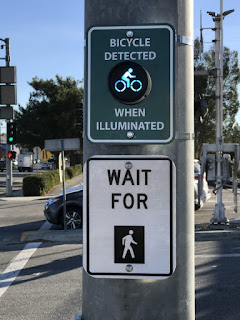Cycling advocates and urban planners sometimes talk about combining modes of transportation. Usually, they mean using a personal and a mass mode of transportation. One example might be riding your bike to the train or bus station.
I'm sure that bicycles have been combined with other modes of transportation in ways I never imagined--or, perhaps,that I wouldn't have wanted to imagine:
I don't know whether to feel more sorry for the "camel" or the bike.
I'm sure that bicycles have been combined with other modes of transportation in ways I never imagined--or, perhaps,that I wouldn't have wanted to imagine:
I don't know whether to feel more sorry for the "camel" or the bike.







